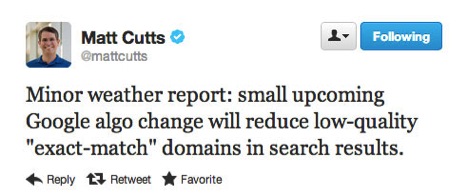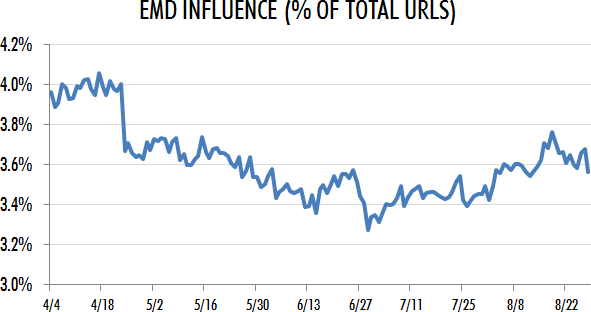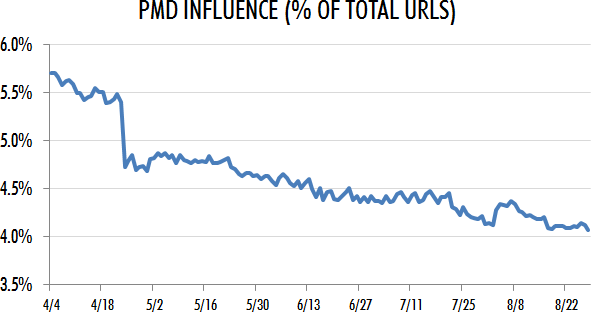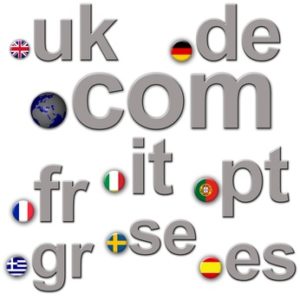In this lesson, we’ll explain the importance of choosing a suitable domain for SEO.
How Keyword Rich Domains affect SEO
If you’re launching a new business that will primarily be marketed through SEO or PPC, having the right keywords in your domain will provide a sizeable boost to your rankings and Click Through Rate (CTR%).
In SEO both Google and Bing give quite a lot of weight to the keywords in your domain nam (in fact, Bing massively favors exact-match domains for search queries). This is because search engines use the keywords in your domain to help understand the relevance and topical nature of the site. For instance, if your website has your main keywords in the domain name (e.g. SEOBook.com) than it gives search engines greater confidence in the relevance of your site: in this case, SEO.
Furthermore, running a site with keywords in your domain will also increase the likelihood of receiving backlinks with keyword-rich anchor text, which reinforces the SEO process.
In conclusion, while choosing a keyword domain isn’t necessarily the most important thing in SEO – after all, some of the world’s most successful sites operate on brand domains – choosing a keyword rich domain can help a lot when targeting smaller niches.
How a Keyword Rich Domain can Improve your CTR%
In both SEO and PPC, one of the ways that Google measures the quality and relevance of your website is by studying the Click Through Rate (CTR) of your site. This is the percentage of people that click on your site in the search engine results page (SERP).
Many studies have proven that exact-match and partial-match domains have a higher than average CTR% in search engines. This is because users see the keywords in the domain and assume it is a more relevant or authoritative result. This is especially true when the keywords in your domain are bolded in the results:

A higher CTR% score than your competition not only sends more traffic to your site but it also gives Google greater confidence that your site is the best result for the query. This will help promote your search engine rankings in the long-term.
In paid search campaigns, a higher CTR% also leads to a better ad score and lower cost-per-click (CPC), giving you a crucial advantage over your competition.
Types of Domains:
1. An exact-match domain (EMD) is a web domain that contains your keywords exactly. The following are examples of exact-match domains:
- BuyGold.co.uk
- InfographicDesigner.co.uk
- SheffieldDentist.co.uk
Up until recently, exact-match domains gave you a massive boost in SEO and as such they were extremely valuable for webmasters. However, in October 2012 Google launched a new update, which reduced the impact of exact-match domains in the search results:

Thus, while EMDs are still valuable, they have less of an impact in SEO then they used to
2. A partial-match domain (PMD) is a domain that contains some or even a mixture of your keywords but that don’t match your keywords exactly. The following are examples of PMD domains:
- FairBinaryOptions.com
- IdealDentalCare.co.uk
- PureInfographics.com
3. Brand domains or non-keyword domains are those that don’t include your main keywords and are brandable in nature. For example:
- Amazon.com
- Google.com
- Tradimo.com
Is the Value Of Keyword Rich and EMDs Reducing in SEO?
According to a study by Moz.com, the prominence given to EMDs and PMDs in Google’s search results has been steadily declining. The charts below illustrate the reduced appearance of EMD/PMD domains throughout 2012.


While these charts clearly show that the value of EMDs and PMDs in SEO is declining, they are still widely regarded as important in the overall SEO ranking factors.
How Does your Domain Extension and Local Hosting Affect your SEO Rankings?
 Google uses the domain extension of your site to understand the geo-target preferences of your site.
Google uses the domain extension of your site to understand the geo-target preferences of your site.
This means that if you’re business is UK-centric than you should use a UK domain extension such as .co.uk or .org.uk, which will help promote your site in the UK search results.
On the other hand, if your business is International than you should use a top-level domain (TLD) such as .com, .net, .co or .net, which broadly targets all countries and regions.
If your business was originally UK focused but then you expanded towards an International audience, you might be better off launch a new site or migrating the site to a TLD such as .com.
In contrast, if you have an international domain extension but want to target a smaller region than you can do this by simple editing the geo-targeting preferences in Webmaster Tools.
With regards to the location of your hosting, this isn’t something you need to worry about as Google has publicly stated that the location of your website hosting is irrelevant for SEO for most websites.
